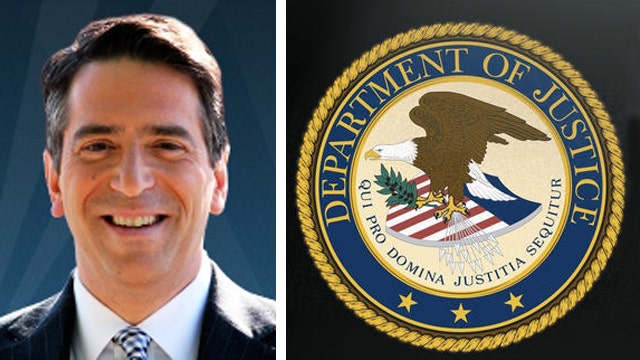Rpt: DOJ investigated Fox News reporter in 2009 leak probe
Chief Washington correspondent James Rosen's personal e-mails allegedly targeted over North Korea reporting
A Fox News correspondent was accused in a Justice Department affidavit of being a possible criminal "co-conspirator" for his alleged role in publishing sensitive security information -- in a leak case that takes the highly unusual step of claiming a journalist broke the law.
According to court documents, the Justice Department obtained a portfolio of information about Fox News' James Rosen's conversations and visits to the State Department. This included a search warrant for his personal emails.
The effort follows that by the department to secretly obtain two months of phone records from Associated Press journalists as part of a separate leak probe. The department in this case, though, went a step further -- as an FBI agent claimed there's evidence the Fox News correspondent broke the law, "at the very least, either as an aider, abettor and/or co-conspirator."
Michael Clemente, Fox News' executive vice president of news, defended Rosen in a statement issued Monday afternoon.
"We are outraged to learn today that James Rosen was named a criminal co-conspirator for simply doing his job as a reporter," Clemente said. "In fact, it is downright chilling. We will unequivocally defend his right to operate as a member of what up until now has always been a free press."
The case has also caught the attention of Congress. Sen. Marco Rubio, R-Fla., said in a statement Monday he was "very concerned" about the reports of "possible criminal prosecution for doing what appears to be normal news-gathering protected by the First Amendment."
He added: "The sort of reporting by James Rosen detailed in the report is the same sort of reporting that helped Mr. Rosen aggressively pursue questions about the Administration's handling of Benghazi. National security leaks are criminal and put American lives on the line, and federal prosecutors should, of course, vigorously investigate. But we expect that they do so within the bounds of the law, and that the investigations focus on the leakers within the government -- not on media organizations that have First Amendment protections and serve vital function in our democracy."
In the case involving Rosen, a government adviser was accused of leaking information after a 2009 story was published online which said North Korea planned to respond to looming U.N. sanctions with another nuclear test.
An affidavit entered by FBI agent Reginald Reyes claimed there was "probable cause" to believe Rosen -- identified only as "the reporter" -- had violated a provision of U.S. law barring the unauthorized disclosure of defense information. This is where Reyes labeled Rosen as a possible "co-conspirator" -- an allegation used to gain access to two days' worth of emails.
The search warrant for that request was ultimately approved, the records show.
Investigators, in pursuing the case, also obtained records of Rosen's visits to the State Department headquarters by tracking security-badge information. As first reported by The Washington Post, a court affidavit said they used the badge records to log his visits as well as the movements of the adviser, Stephen Jim-Woo Kim.
The FBI agent said in the affidavit that the visits suggested a "face-to-face" meeting.
According to the Post, investigators also obtained two months of phone records from Kim's office.
Rosen said Monday that "as a reporter, I always honor the confidentiality of my dealings with all of my sources."
He was not contacted by any government or law enforcement representative during the investigation.
White House Press Secretary Jay Carney, asked about the case Monday, said he could not comment on the "ongoing investigation." He said President Obama is a "strong defender of the First Amendment," but also is "insistent that we protect our secrets, that we protect classified information."
The Department of Justice said in a statement Monday that "leaks of classified information to the press can pose a serious risk of harm to our national security and it is important that we pursue these matters using appropriate law enforcement tools."
The U.S. attorney's office for the District of Columbia also said the government, before seeking approval for the search warrant, "exhausted all reasonable non-media alternatives for collecting this evidence."
While Kim has already been indicted, the office said no other charges have been brought. "Based on the investigation and all of the facts known to date, no other individuals, including the reporter, have been charged since Mr. Kim was indicted nearly three years ago," the office said.
Attorney General Eric Holder said at a House hearing last week that he is not interested in prosecuting the press.
"With regard to the potential prosecution of the press for the disclosure of material, that is not something that I've ever been involved in, heard of or would think would be a wise policy," he said on May 15.
The seizure of records from the AP offices also spanned two months.
AP President Gary Pruitt said on CBS' "Face the Nation" Sunday that the AP records grab was not only unconstitutional but damaging to the operation of the press.
"It will hurt," he said. "We're already seeing some impact. Officials are saying they're reluctant to talk."












































